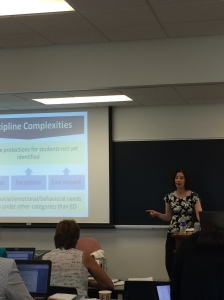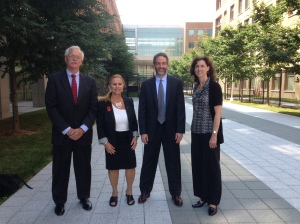Evan’s Take
Exciting School Advocacy Updates from PWSA (USA)
Welcome to our first 2016 issue of School Times – rebranded and expanded to serve you better. This issue is chock full of great information. But first, two exciting announcements!
The New Wyatt Special Education Advocacy Training (WSEAT)
The goal of the WSEAT is to continue building the capacity of special education advocacy skills in the PWS community. After evaluating the 2013 training, and the special education advocacy needs and capabilities of the PWS community, we are transitioning the WSEAT to a new online model to be implemented in the summer of 2016. Stay tuned for registration announcements in upcoming issues of School Times. We invite and encourage you to read more about WSEAT so you will fully understand this amazing new training available to all in the PWS Community – free of charge.Click here to learn more
The School Experience of Students with PWS in the United States: A Groundbreaking Survey
We are launching the first ever comprehensive survey to capture the school experience of students with PWS in the United States. This will give us important hard data on how effectively schools are supporting students with PWS and how parents/guardians feel about their experience with school professionals and the special education system. We are asking all parents/and guardians in the PWS community to fill out this survey – both if your child is currently in school and if your child has graduated no matter how long ago. The survey takes only 10 minutes to fill out. You have the option to take the survey anonymously if you wish. Thank you for your participation!
Evan Farrar, M.A.
PWSA (USA) Crisis Intervention and Family Support Counselor
To see the entire version of the March 2016 School Times click here Entire March School Times
To sign up for the School Times FREE mailing list email Evan at efarrar@pwsausa.org

 acting Assistant Secretary of the Office of Special Education and Rehabilitative Services at the US Department of Education. During his presentation, Mr. Yudin called parents of children with disabilities “agents of change” because they push schools to believe and expect that more is possible for their children. This parental expectation, in turn, drives schools to provide better services and supports to help students with disabilities to succeed academically and socially.
acting Assistant Secretary of the Office of Special Education and Rehabilitative Services at the US Department of Education. During his presentation, Mr. Yudin called parents of children with disabilities “agents of change” because they push schools to believe and expect that more is possible for their children. This parental expectation, in turn, drives schools to provide better services and supports to help students with disabilities to succeed academically and socially.




